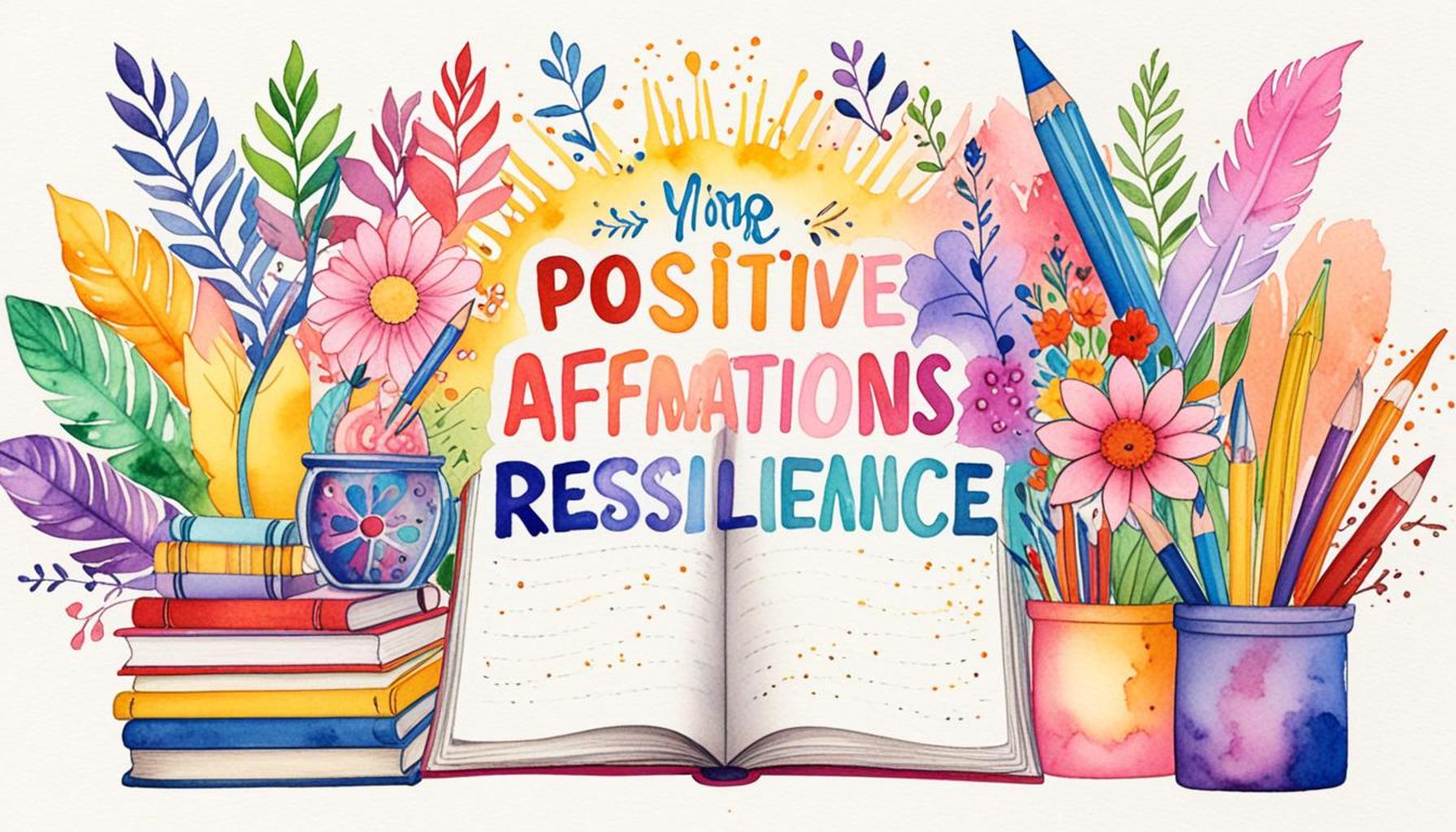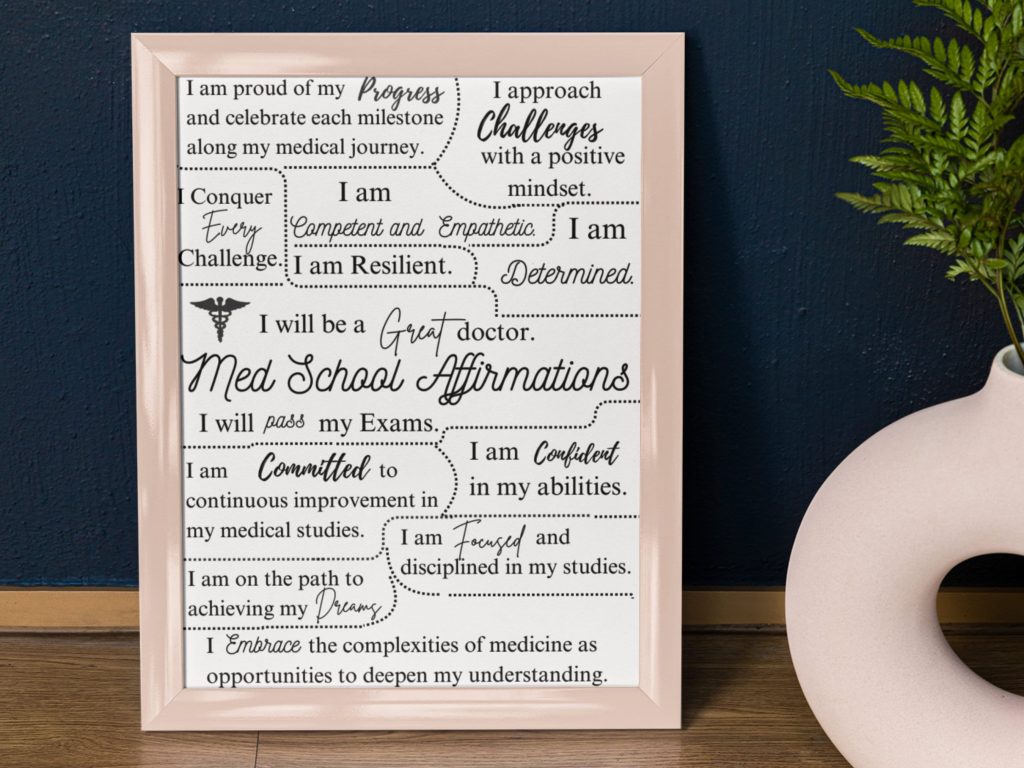Positive Affirmations for Students: How to Cultivate Self-Confidence and Academic Resilience

The Role of Positive Affirmations in Student Empowerment
In today’s rapidly evolving educational landscape, especially in Nigeria, fostering self-confidence and academic resilience among students is more vital than ever. With the increasing pressure of academics and the high stakes involved in examinations, students often find themselves navigating a minefield of challenges that can undermine their confidence and potential. Positive affirmations act as a beacon of hope, providing a transformative approach to shift negative self-perceptions and boost motivation.
In Nigeria, students not only grapple with traditional academic pressures but also face unique environmental factors. For instance:
- Intense academic examinations: Students are often subjected to rigorous testing environments, such as the West African Senior School Certificate Examination (WASSCE) and the Unified Tertiary Matriculation Examination (UTME). The competition is fierce, and the fear of failure can be immobilizing.
- Balancing school with familial responsibilities: Many students contribute to household duties or support their families financially, creating a demanding balancing act between academic commitments and personal responsibilities.
- Coping with societal expectations and peer pressure: In a culture that places significant value on academic success, students may feel relentless pressure to meet the expectations of their parents and peers, which can lead to anxiety and self-doubt.
Incorporating positive affirmations into daily routines presents a robust strategy for overcoming these challenges. Through regular practice, students can experience a host of benefits, including:
- Building lasting self-esteem: Simple affirmations like “I am capable of achieving my goals” help reinforce a student’s belief in their own abilities, leading to increased self-worth.
- Encouraging a growth mindset: Affirmations such as “Every day I learn and grow” instill the understanding that effort and perseverance are key to improvement and not merely innate talent.
- Enhancing focus and motivation: Repeatedly saying phrases like “I am focused and determined” can sharpen concentration, making it easier to tackle assignments and prepare for exams.
Implementing positive affirmations can take many forms, from vocal repetition in the morning to writing them in journals or even integrating them into family discussions. For example, students might begin their day by looking in the mirror and repeating affirmations aloud, such as “I will face challenges with courage” or “I am worthy of success.” This small but impactful practice can lay the groundwork for a productive and confident day.
This article aims to inspire Nigerian educators and students alike to explore the techniques and practical examples of positive affirmations. By embedding these affirmations into the educational journey, students can cultivate the resilience needed to navigate their unique challenges and pursue academic excellence with unparalleled confidence.

RECOMMENDED: Check out this similar article
Understanding Positive Affirmations and Their Impact
Positive affirmations are powerful statements that can enhance one’s mindset and outlook on life, particularly in the academic arena. For students, these affirmations serve more than just motivational quotes; they are strategic tools designed to combat negative thoughts and self-doubt that can hinder academic performance. The idea is simple: by consistently repeating certain positive phrases, students can begin to internalize these beliefs and reshape their mental framework, leading to heightened self-confidence and improved resilience in the face of academic pressures.
The science behind positive affirmations is anchored in psychology. Research has shown that regular affirmation practice can reduce stress, enhance problem-solving abilities, and improve overall academic performance. The act of verbalizing or writing affirmations allows students to engage with their aspirations and capabilities actively. As they repeat phrases that resonate with their ambitions, they cultivate an internal dialogue that supports a growth mindset—a concept championed by psychologist Carol Dweck, emphasizing that abilities can be developed through effort and perseverance rather than being fixed traits.
How Positive Affirmations Work in Practice
Implementing positive affirmations involves more than simply reciting phrases. It requires a mindful approach that integrates affirmations into daily habits. Students can adopt various methods for incorporating affirmations into their routines, enhancing their effectiveness and global reach in academic settings. Here are several practical techniques:
- Morning Rituals: Starting the day with affirmations can set a positive tone. For instance, students could mirror-talk affirmations such as “I am resilient and will tackle challenges with confidence.”
- Journaling: Writing affirmations in a dedicated journal can reinforce beliefs. This practice allows students to visualize their goals and commit to their aspirations on paper.
- Group Practices: Students can create supportive environments by sharing affirmations with peers during study groups, fostering a sense of community and collective motivation.
- Technology Integration: Utilizing apps and reminders on smartphones to prompt students to recite their affirmations throughout the day can serve as helpful nudges.
In a country like Nigeria, where diverse academic challenges persist, the integration of positive affirmations can be particularly impactful. With the fierce competition for limited university slots and the weight of societal expectations, cultivating an atmosphere where students feel empowered through self-affirmation can help counteract the stressors they face. By engaging with positive affirmations, students are not simply reciting pep talks; they are actively participating in a cognitive and emotional strategy that propels them forward.
Ultimately, the beauty of positive affirmations lies in their accessibility. Students from various backgrounds can adopt this practice without needing extensive resources or specialized training. As education continues to evolve, leveraging positive affirmations presents a dynamic avenue for fostering self-confidence and academic resilience, paving the way for students to excel against all odds.
| Advantage | Description |
|---|---|
| Enhanced Focus | Positive affirmations help students develop a clearer mindset, enabling them to concentrate better on their studies. |
| Improved Performance | Consistent use of affirmations boosts academic resilience, leading to higher grades and enhanced learning experiences. |
Positive affirmations serve as powerful tools in a student’s educational journey, fundamentally shaping their self-image and building >self-confidence. Implementing phrases such as “I am capable” or “I can overcome challenges” fosters a positive self-dialogue. This supportive mental state can significantly reduce anxiety and stress prevalent during exams or project deadlines. Moreover, through regular practice, students can combat negative thoughts that contribute to feelings of inadequacy or fear of failure. Research consistently shows that affirmations not only promote motivation but also increase resilience toward academic setbacks. As a result, students become better equipped to handle difficulties, transforming challenges into opportunities for growth.Additionally, forming a daily routine around affirmations can establish a foundation of resilience. When students vocalize their strengths daily, they reinforce their belief in their abilities, setting the stage for increased engagement in their learning activities. Thus, the cycle of self-affirmation perpetuates not only better performance but a healthier approach to learning as well.
CHECK OUT: Click here to explore more
Unlocking the Power of Positive Affirmations in Education
Positive affirmations are not merely affirming phrases; they have the potential to transform a student’s experience by fostering a strong belief system that leads to academic success. As students navigate their educational journeys, particularly in a competitive environment like Nigeria, the pressure to perform can create overwhelming anxiety. Here, positive affirmations can act as vital tools to combat these feelings, enabling students to maintain focus and bolster their self-belief.
One of the most promising aspects of positive affirmations is their adaptability. Different students can customize their affirmations to suit their personal goals and challenges. For example, a student feeling the weight of financial constraints while pursuing higher education could adopt affirmations such as “I am capable of overcoming my challenges and achieving my dreams” or “I attract opportunities that support my education.” This tailored approach not only fosters self-confidence but also encourages a forward-looking mindset.
Real-Life Applications of Affirmations in Academics
Employing positive affirmations in education extends beyond individual practices; they can be incorporated into various academic settings to enhance learning environments. Here are some innovative ways schools and educators can champion positivity:
- Classroom Affirmation Boards: Teachers can create boards where students contribute their own affirmations or those of their classmates. This communal approach reinforces a culture of positivity and accountability.
- Mentorship Programs: Older students can mentor younger peers, sharing both academic experiences and affirmations that guide them through obstacles, thus creating a supportive feedback loop.
- Academic Workshops: Workshops designed to teach coping mechanisms for stress can include sessions on how to formulate and implement effective positive affirmations, empowering students to manage their academic journeys proactively.
The impact of positive affirmations can extend beyond academic success, nurturing essential life skills. Students who practice self-affirmation often develop critical thinking skills and better decision-making abilities. Furthermore, as they witness their resilience in overcoming challenges, students cultivate a sense of autonomy, often leading to improved academic outcomes and persistence in pursuit of their goals.
For students in Nigeria, engagement in positive affirmations might seem new, but it has profound implications. Imagine a scenario where a student preparing for the Unified Tertiary Matriculation Examination (UTME) begins each study session with affirmations that boost their morale. By asserting statements such as “I excel in my studies and prepare effectively for my exams,” the student sets a psychological benchmark for achievement.
Research has shown that frequently practicing positive affirmations can lead to enhanced motivation, which is critical during challenging periods—including exam preparations, project deadlines, and balancing academic life with personal responsibilities. The health benefits are significant too; lower stress levels contribute to better memory retention, creativity, and overall mental clarity.
While many students may initially feel uneasy about the practice of affirmations—often seen as ‘wishful thinking’—the emerging evidence substantiates their effectiveness. When embraced earnestly, these affirmations foster a principle of self-empowerment. As students gradually internalize these practices, the cumulative effect manifests as enduring self-confidence and resilience, vital traits that will serve them well throughout their academic and future professional lives.
Incorporating positive affirmations into daily student life provides an avenue not just for academic success, but a pathway to overall well-being as well. In this ever-demanding educational landscape, arming students with the right mindset is crucial for navigating challenges and achieving their goals.
RECOMMENDED: Check out this similar article
Empowering Students through Positive Affirmations
In a world where academic pressures can weigh heavily, positive affirmations emerge as transformative tools that can significantly enhance a student’s self-confidence and resilience. By actively embracing affirmations, students can create a robust psychological foundation that not only supports their educational aspirations but also fosters overall well-being. The ability to articulate positive statements can serve as a catalyst for change, turning self-doubt into a proactive resilience that feeds into both their academic performance and personal lives.
As we have explored, the flexibility inherent in positive affirmations allows each student to tailor their declarations to their unique circumstances. Whether they’re navigating the complexities of school fees or preparing for crucial exams, these affirmations can act as buoyant reminders of their capabilities. Furthermore, by integrating affirmation practices into educational frameworks—such as classroom boards and mentorship initiatives—institutions can nurture a community steeped in positivity and support.
The ripple effects of this practice extend beyond the classroom, encouraging essential life skills that prepare students for future challenges. In a country like Nigeria, where educational and socioeconomic barriers often loom large, instilling a habit of positive self-affirmation can empower students to defy limitations and seize opportunities with courage.
Ultimately, as students cultivate a habit of repeating and internalizing affirmations, they pave the way for a brighter academic future. The journey might begin with simple phrases, but the impact can be profound, instilling a radiant confidence that inspires perseverance. Embracing this practice not only prepares students to excel academically but also equips them with the mental fortitude needed to thrive in all aspects of life.


